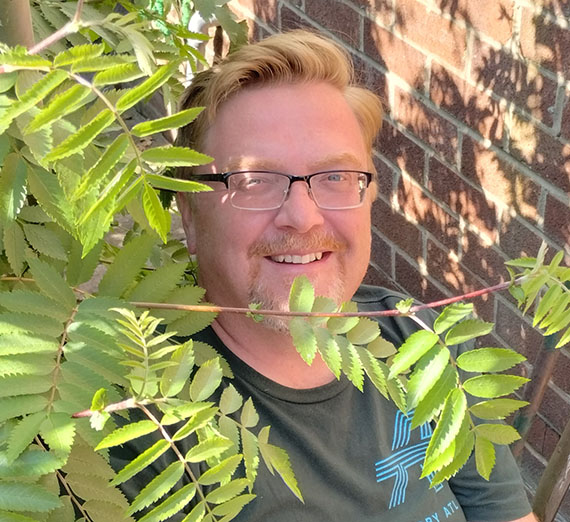Welcome Josh Hogan as the new University Archivist

A Tennessee native, Josh grew up in Cosby, a small town near Gatlinburg. He's an alumnus of Maryville College (B.A., History) and holds two master's degrees—one in Medieval Studies from the University of Notre Dame and another in Information Science from the University of Tennessee.
Josh and his wife, Catherine, have been married since 2001. Catherine is an accomplished ESL teacher who specializes in working with pre-literate and low-level learners and has a passion for refugee resettlement. They recently moved to Spokane's Logan neighborhood, where they live with their senior cat, Freddie, who they adopted from Spokanimal.
When he's not at the library, Josh loves spending time outdoors. His hobbies include hiking, kayaking, and biking. He's also an avid gardener who focuses on native and pollinator-friendly plants. As a certified forest bathing guide and trained Georgia Master Naturalist, he looks forward to exploring the beautiful landscape of Washington.
Role and Projects
As University Archivist, Josh will work with Stephanie Plowman in University Archives and Special Collections (UASC) to manage the university's records and collections.
His initial projects will focus on:
- Updating UASC's collection development policy: This will help the department be more intentional in curating its collections.
- Developing an access policy for the Verne Ray papers: This important collection contains culturally sensitive materials related to Native American tribes.
- Building relationships across campus: Josh plans to connect with the campus GLAM (Galleries, Libraries, Archives, and Museums) community as well as other departments and offices.
